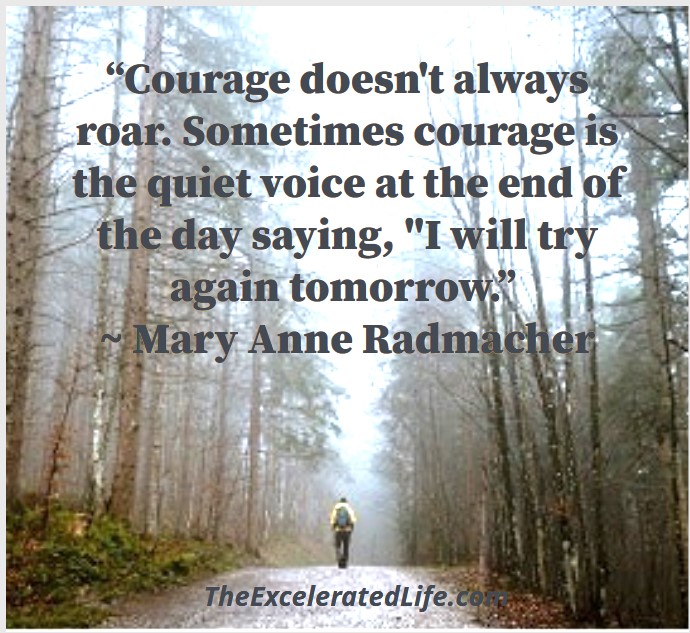The ABCs of effective living? A = Adversity, B = Belief, and C = Consequent feelings. Our Beliefs (B) about an Adversity (A) – NOT the adversity itself – cause our Consequent (C) feelings. [Seligman] It isn’t what happens to us but how we think about what happens to us that determines how we feel. By stepping into the space between stimulus and response, we can choose a more empowering set of beliefs. But first, we have to see that space.
TheExceleratedLife.com

Understanding The Gap
“Between stimulus and response, man has the freedom to choose.” ~ Dr. Stephen Covey, “The 7 Habits Of Highly Effective People”
When I first read this statement many years ago, I struggled to understand what it meant. I understood the words, but I didn’t get the concept. It was completely foreign to me. I had become so inured to reacting to whatever I encountered, it never occurred to me that there was any other way to behave. I pondered this idea, discussed it with various friends, and read and re-read that section in Dr. Covey’s book.
Little by little, I began to see a gap — albeit a small one — between an event or a remark and my reaction. I began choosing to respond, rather than mindlessly reacting.
Objects And Space
Eckhart Tolle states that the universe consists of objects and space. Things and nothing. Form and the vastness within which form exists. Thought and the stillness within which thought exists. When I began to understand that concept, I finally understood the concept of the space between stimulus and response.
How do you expand the gap between a stimulus and your response to it, such that you begin to experience the freedom to choose your responses to life? Well, that gets tricky. “Trying” and “doing” disrupt the process of being still, of experiencing the stillness which allows you to see the space and to choose your response. With that in mind, here are some things I have found that have helped me to recognize the space between stimulus and response.
Prayer And Meditation
This is the primary thing that allows you to quieten your mind to hear the “still, small voice”. God or Spirit or Universal Intelligence (or whatever name you give to the Creator) does not come in the whirlwind or the fire or the earthquake. To hear God, you must be still and listen.
Slow Down
When you rush from one activity to the next, from one meeting to another or one task to another, you may find it increasingly difficult to pay attention to the present moment, to be in the Presence. Rushing fuels the adrenaline surge, which is antithetical to the inner calm and centeredness that allows you to be in the moment.
But, you say, you have so many things to do that you can’t possibly slow down. Then . . .
Simplify
Remove clutter from your life — material clutter from your environment, mental clutter from your thoughts, schedule clutter from your calendar. Have about you only those things that are beautiful, useful, or that you love. Examine your To Do list. What tasks are there that only you can do? Prioritize those and delegate the rest. What tasks are on your list that don’t have to be done by anybody? or that you’re never going to do? Mark those off today.
Reconnect With Nature
Experience the stillness of nature to reconnect with the Stillness within you. Sit quietly in a forest or park and begin to feel the connectedness with all living things. Listen to the silence and begin to recognize the silence within yourself that allows you to see that you are separate from your thoughts.
You Can Choose Your Response
We don’t have to rush through life, bouncing from one thing to another, always in reactive mode. There is a different way. And you have the ability to choose which way you want to be. As Stephen Covey writes:
“Within the freedom to choose are those endowments that make us uniquely human. In addition to self-awareness, we have imagination — the ability to create in our minds beyond our present reality. We have conscience — a deep inner awareness of right and wrong, of the principles that govern our behavior, and a sense of the degree to which our thoughts and actions are in harmony with them. And we have independent will — the ability to act based on our self-awareness, free of all other influences.” [Covey]
It is difficult (some say impossible) to control your emotions through direct action. But control them you can – by changing your thoughts about the situation. “Emotions don’t follow … from external events,” writes Dr. Martin Seligman, “but from what you think about those events.” And you can control your thoughts by stepping in that space between the stimulus and your response. That is embracing the Excelerated Life™!
Excelerated Focus™ — aligning your actions with your true desires — is one step in creating your Excelerated Life™, a life of flourishing and well-being and a life of meaning, purpose and service.
Read more about the Excelerated Life™.
Resources:
Covey, Stephen R. The Seven Habits Of Highly Effective People. New York: Simon & Schuster, 1989.
Seligman, Ph.D., Martin E. P. Flourish. New York: Free Press, 2011.
Tolle, Eckhart. A New Earth – Awakening To Your Life’s Purpose. New York: Penguin Books, an imprint of Penguin Random House LLC, 2005, 2016.

